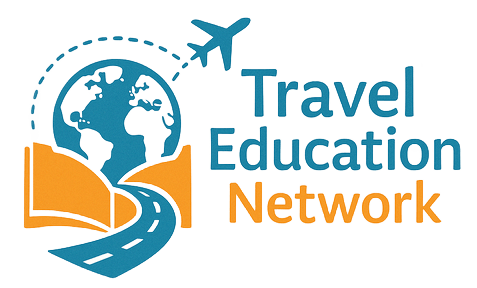What Education Do You Need to Become a Travel Nurse?
Want to become a travel nurse and explore the world while advancing your nursing career? Discover the educational path, licensing requirements, and essential experience you’ll need to succeed. Learn about ADN vs. BSN degrees, the importance of the NCLEX-RN exam, and how the Nurse Licensure Compact (NLC/eNLC) can simplify interstate practice. Explore specialized certifications like ACLS, PALS, CCRN, and CMSRN to boost your career and earning potential. Start your journey today and find out how to become a sought-after travel nurse!
Important information

- A Bachelor of Science in Nursing (BSN) degree is preferred by employers, although an Associate Degree in Nursing (ADN) is acceptable. A BSN offers more career opportunities.
- Passing the NCLEX-RN exam is mandatory for all registered nurses, including travel nurses.
- Licensing requirements vary by state. Nurses in compact states can practice in multiple locations with one license, while others need individual state licenses.
- One to two years of clinical experience is generally required, with more experience preferred for specialized roles.
- Certifications like ACLS, PALS, CCRN, and CMSRN enhance job prospects and may be required for certain travel nursing positions. BLS certification is essential.
What Education is Required to Become a Travel Nurse?
Aspiring travel nurses need a nursing degree, such as an ADN or BSN. Employers often prefer a BSN. Candidates must also hold the same licensing credentials as registered nurses to ensure patient safety and quality care.
Associate Degree in Nursing (ADN) vs. Bachelor of Science in Nursing (BSN)
ADN (Associate Degree in Nursing)
Takes two years to complete, preparing students to become registered nurses (RNs).
Focuses on the fundamental skills and knowledge for direct patient care.
Graduates are eligible to take the NCLEX-RN licensure exam.
BSN (Bachelor of Science in Nursing)
Takes four years to complete, providing a more in-depth education.
Covers a broader range of topics, including leadership, research, and community health.
Graduates are prepared for a wider range of roles and career advancement.
Graduates are also eligible to take the NCLEX-RN licensure exam.
Both ADN and BSN pathways lead to becoming a registered nurse, and both require passing the same licensure exam. However, the BSN’s additional training often makes BSN-prepared nurses more desirable to employers. A BSN can open doors to more specialized roles, leadership positions, and opportunities for higher salaries.
Accelerated Bachelor’s in Nursing Programs
If you already have a bachelor’s degree in a field other than nursing and want to become a travel nurse, an accelerated BSN program could be ideal. These fast-track options typically take just 12 to 18 months to complete, offering a swift path to a BSN and a rewarding new career.
Advanced Nursing Degrees: MSN and DNP
Advanced nursing degrees like an MSN or DNP open doors to a wider range of career options for travel nurses, including specialized roles and leadership positions. These advanced qualifications can also lead to higher earning potential, a definite plus in the travel nursing field.
Licensure and Examinations for Travel Nurses
The NCLEX-RN exam is a crucial national test for aspiring registered nurses, confirming their skills and paving the way for licensure. The Nurse Licensure Compact (NLC) and its enhanced version (eNLC) offer flexibility for nurses. Nurses with a primary residence in a compact state can practice in multiple jurisdictions with one license. However, nurses residing outside a compact state must obtain individual licenses for each state where they intend to work. Travel nurses, in particular, need to secure a license in each state where they’ll be practicing. These licenses are governed by state boards of nursing. The process often involves background checks, fees, and specific documentation. Some states offer expedited licensing for travel nurses to facilitate a quicker start.
NCLEX-RN Exam
A crucial national test for aspiring registered nurses, confirming their skills and knowledge for licensure.
Nurse Licensure Compact (NLC/eNLC)
Offers flexibility, allowing nurses with primary residence in a compact state to practice across multiple jurisdictions with one multistate license.
Licensing for Non-Compact State Residents
Nurses residing outside a compact state must obtain individual licenses for each state where they plan to work.
Travel Nurse Licensing
Requires obtaining individual licenses for each state of practice, often involving background checks, fees, and documentation.
NCLEX-RN Exam: The Path to Licensure
Aspiring registered nurses must pass the NCLEX-RN, the National Council Licensure Examination. This crucial exam assesses nursing skills and ensures safe, effective practice. Recent nursing graduates, especially those considering travel nursing, should prioritize this exam after graduation. Passing this milestone allows you to apply for licensure through your state’s board of nursing.
Nurse Licensure Compact (NLC) and Enhanced Nurse Licensure Compact (eNLC)
The Nurse Licensure Compact (NLC) allows registered nurses (RNs) to practice in multiple states with a single license, much like a multi-state travel pass. An updated version, the enhanced Nurse Licensure Compact (eNLC), further streamlines interstate nursing. With an eNLC license, nurses can work in any participating state. However, nurses whose home state hasn’t adopted the eNLC still need individual licenses for each state where they practice to ensure they’re working legally.
State Nursing License Requirements
Registered nurses (RNs) must hold a license in the state where they intend to work. The Enhanced Nurse Licensure Compact (eNLC) simplifies the process, allowing RNs licensed in one compact state to practice in other eNLC states. If your state isn’t part of the eNLC, you’ll need individual licenses for each state where you want to work. Obtaining a license typically involves verifying your education and passing the NCLEX-RN exam. A background check is also required. Some states offer expedited temporary licenses for travel nurses to help them start working more quickly.
Gaining Clinical Experience and Work History
Travel nurses need significant clinical experience to thrive. This allows them to quickly integrate into new hospital settings and effectively care for diverse patient populations. This adaptability is crucial, especially given the short-term nature of travel nurse assignments. While one year of experience is often the minimum requirement, two or more is generally preferred, particularly for specialized units like intensive care and emergency rooms. These high-pressure environments demand nurses with honed skills and the confidence to handle critical situations effectively.
Importance of Clinical Experience for Travel Nurses
A successful travel nursing career depends on strong clinical experience. This background allows nurses to navigate various healthcare settings, integrate smoothly into new teams, and quickly understand new protocols. Most agencies require at least one year of specialized experience, but two years of bedside experience is often preferred. Hospitals with high-acuity units may require even more. This extensive experience enables travel nurses to confidently handle diverse situations, minimizing the need for lengthy orientation and promoting independent, efficient practice.
Recommended Work Experience: Specialty Areas
Specialized experience is a significant advantage for travel nurses. Hospitals frequently seek nurses with backgrounds in high-demand areas like critical care, emergency medicine, and pediatrics. While most agencies require a minimum of one year of specialized experience, its value extends beyond meeting this requirement. It enables nurses to quickly acclimate to new hospital settings and diverse patient populations. For example, a nurse seasoned in a bustling urban ER can seamlessly transition to a similarly fast-paced environment. Conversely, experience in a niche field like neonatal care, while making a nurse highly sought after for specific positions, might reduce the overall number of available assignments. Beyond clinical expertise, soft skills such as adaptability and communication are also essential for a thriving travel nursing career. These skills facilitate smoother integration into new teams and hospital cultures, ultimately leading to more rewarding and productive assignments.
Benefits of Specialized Experience
- easier adaptation to new hospital environments,
- effective handling of diverse patient populations,
- seamless transition between similar clinical settings.
Impact of Niche Experience
- high demand for specific positions,
- potentially limited overall assignment availability.
In addition to clinical expertise, adaptability and strong communication skills are crucial for travel nurses.
Certifications and Specializations
Enhance your travel nursing career with key certifications. ACLS and PALS certifications are valuable assets that can open doors to a wider range of opportunities. Specialized certifications like CCRN and CMSRN provide a distinct advantage, helping you stand out in a competitive job market. While BLS certification is typically a baseline requirement, other certifications can significantly boost your profile. Certifications in specialized areas such as critical care or emergency room nursing are highly sought after by healthcare facilities. Contact your agency to learn about required and recommended certifications and discover what support they offer. This proactive step can be crucial for any travel nurse aiming to excel in their career.
Advanced Cardiac Life Support (ACLS) and Pediatric Advanced Life Support (PALS)
Travel nurses significantly enhance their career prospects with Advanced Cardiac Life Support (ACLS) and Pediatric Advanced Life Support (PALS) certifications. These credentials are particularly advantageous for those specializing in intensive care or emergency room settings. ACLS focuses on adult cardiac emergencies, while PALS addresses the unique needs of pediatric patients. These certifications unlock a wider range of job opportunities and often command higher compensation. Basic Life Support (BLS) certification remains a fundamental requirement for all travel nurses. Contact your recruiting agency for specific certification requirements and assistance in obtaining them.
Specialty Certifications: CCRN and CMSRN
The CCRN and CMSRN certifications demonstrate advanced nursing skills. The CCRN certification specializes in critical care, while the CMSRN certification focuses on medical-surgical nursing. These credentials can significantly enhance a travel nurse’s job prospects. Employers frequently prefer or require these certifications for specialized assignments. Holding these certifications can unlock exciting travel opportunities.













